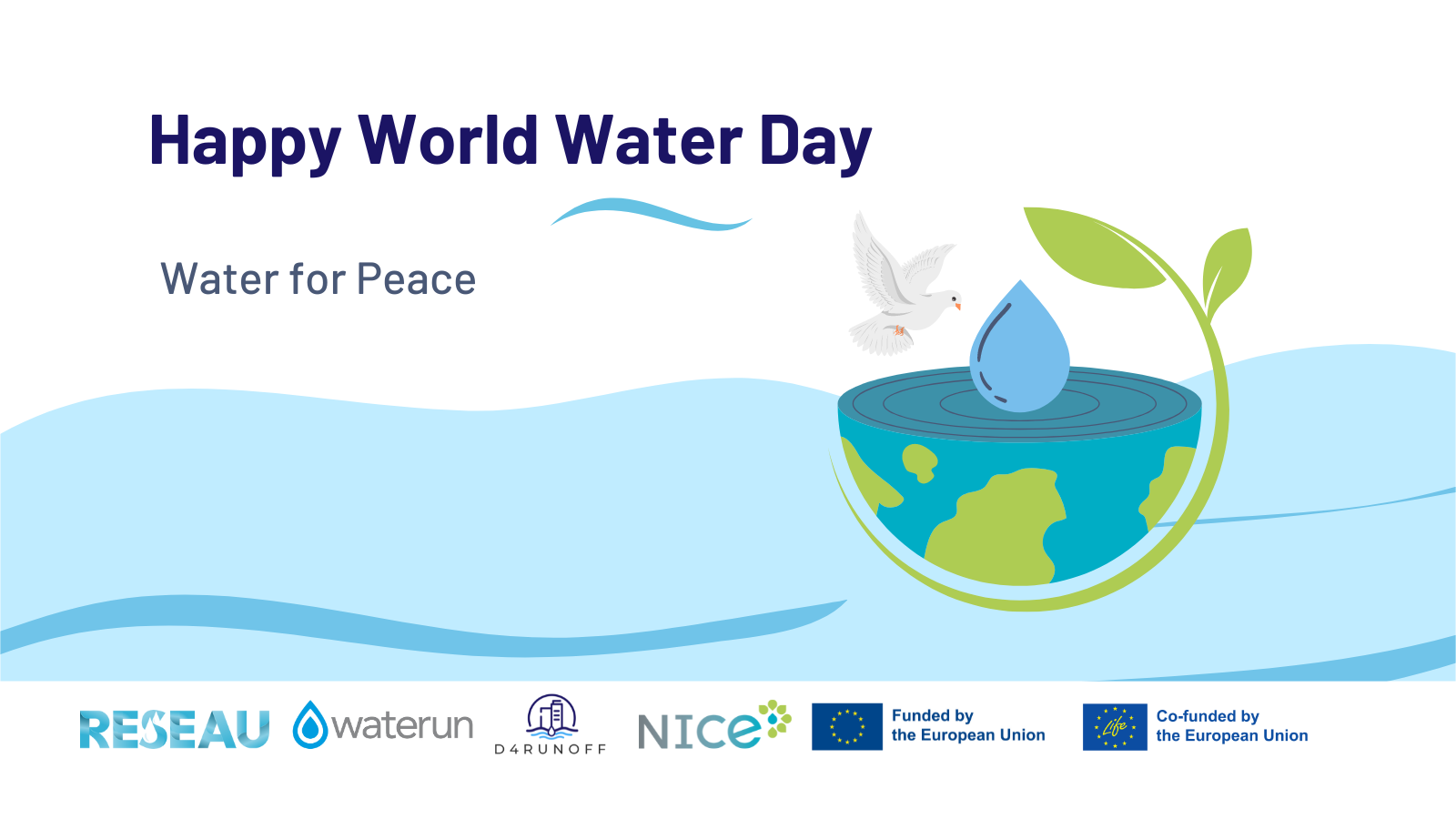
AI-Assisted Platform and its benefits for the local stakeholders/communities
The D4RUNOFF project aims to develop a novel framework for preventing and managing diffuse pollution from urban water runoff by utilizing data-driven design of hybrid Nature-Based Solutions (NBS) adapted to current and future risk scenarios. This initiative addresses the pressing challenges posed by urban water runoff, a critical issue contributing to environmental degradation and compromising water quality in urban areas.
One pivotal and integrative element of the project is the Artificial Intelligence (AI)Assisted Platform to support water management stakeholders in the planning, operation, and risk monitoring of the urban infrastructures for the design of effective strategies to cope and mitigate urban runoff events.
AI-Assisted Platform and Its Conceptualisation
The AI-Assisted Platform is a crucial component of the D4RUNOFF project. The platform will be fully designed, developed, and implemented in real-word scenarios with the objective to support water management stakeholders (i.e. public authorities, engineering, private water operators), urban planners and policymakers in defining and operating the more optimal hybrid solutions applicable to their own risk scenario to achieve non-harmful discharge to water bodies.
It’s conceptualised as a dynamic and integrative system capable of overseeing a continuous development process, encompassing the reception, integration, and processing of information and data, to the deployment of outputs and results that facilitate the development of effective urban runoff and stormwater management plans based on well-informed decisions, while boosting the implementation of NBS to address water runoff pollution issues in urban areas.

From a technical perspective, the AI-Assisted Platform is organised into six primary modules:
- The Data Gathering module
- The Calculation Engine
- The Operational and Strategic Module
- The Risk Assessment Methodology and Module
- The Policy-Making Module
- The Social Module
Benefits for Local Stakeholders/Communities
The AI-Assisted Platform will be implemented in the three European Pilot sites of the D4RUNOFF project (Odense Demo site in Denmark, Santander Demo site in Spain, and Pontedera Demo site in Italy), undergoing thorough testing and validation.

It is expected to be utilised by a diverse range of key users and stakeholders, each playing different roles in decision-making and sustainable water management in urban environments.
- Technical operators: these users primarily engage with the platform to access accurate real-time data on water quality and stormwater system performance
- Policymakers: the AI-Assisted Platform aims to provide these users with information to support evidence-based decision-making
- facilitating the evaluation of potential impact of water management policies and strategies across different scenarios
- Scientific community: these stakeholders would be able to access accurate data and information regarding urban runoff water pollution and the performance of implemented NBS. This usage aims to deepen the current knowledge in this field
- Citizens and civil society: the primary use of the D4RUNOFF platform for this user category would be to obtain information about water management in cities raise awareness about water runoff pollution issues and contribute to the promotion of sustainable practices
The key challenges are to assess the impact of urban pollution on water quality, to improve the modelling and monitoring for future decision-making and to identify and evaluate domestic features in sewer networks to assess pollutants and quantify their impact in various areas.
Next Steps
Following consultation with stakeholders, the AI-Assisted Platform has been initially designed as a dynamic and integrative system overseeing continuous development, managing information reception, integration, modeling, and processing to deploy outputs that facilitate users’ decision-making regarding effective water runoff and stormwater management in urban environment.
Collaborations have been initiated in the current phase of the project with partners responsible for the Pilot sites, where the AI-Assisted Platform will be implemented, tested, and validated, aiming to increase understanding of the Pilots for incorporation into the initial design of the platform.
Author: ITG. David Villar Rodríguez, co-author: ITG. Jesús Fernández Águila


